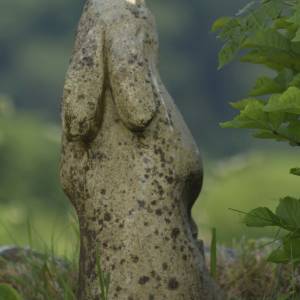Or Are You Just Very Small?
Before beginning this week's blog I feel compelled to make mention of the Grenfell Tower Fire. And the terrible tragedy that happened there; at least 30 dead and 70 missing overall (including the 30). If this blog is about anything - aside from loss of one kind or another - it is about the working class neighbourhood of my childhood and youth, it is about people living together, striving together and struggling together as well as laughing and learning and growing. It's about camaraderie and love. I feel that I was lucky to grow-up in such a neighbourhood: it has shaped my sense of shared purpose and given me an understanding of endeavour, graft and belonging that not everyone gets to encounter. It was not perfect and I spent a part of my life afraid of who I might run into around any given corner and another part worried about what my middle class friends who I went to school with might think of me, perhaps even something close to shame about not being quite like them. That's what a dominant narrative does to people - it keeps them in their place, and it makes them feel bad for not being the same as those who have privilege, and then offering tempting sign-posts and pathways that not everyone can take. And calling people failures when they miss the chance - perhaps a single chance - on offer to them. I have been lucky. I was lucky that when I fell through a greenhouse and nearly died, the NHS patched me up, I was lucky because although we were poor we had enough food and a house that was warm, and that was our own. I was lucky I had somewhere decent to live. I was lucky that I was educated in the 70s and 80s before we imposed a curriculum that stopped people thinking for themselves and I was lucky to be able to go to university on a grant and fees paid (and just as lucky to receive bursaries for my MA and PhD). I was lucky to get a good job, and have a career. No one gets to be that lucky now. Working class people have been marginalised and demonised - and options are increasingly limited even if they are educated, even if they have a job, even if they have a sense of place and community. But fundamentally people need to be safe in their homes because none of those other things can happen if they are not. David Lamy had it right in this video. People need somewhere decent to live - that's the first and last of it. People were crammed into that tower block - families of five and six sometimes, in two bedroom flats that were just 75.5 metres squared. Families with young children and older people on the 16th, 17th, 18th, 19th and 20th floors. And higher still. It beggars belief. This was an accident waiting to happen and now that it has the only saving grace is that the community is angry and rising. I hope they can translate that anger into real change so that this does not happen again. So that political change will enable this working class community and others to expect a fair chance, and the power to effect positive outcomes in their own lives.
Or Are You Just Very Small?
Vera met her husband-to-be on a bus. It was not the most romantic of venues and she was not the most romantic of people. She thought she was on the shelf. I asked her which shelf once, and she said, "The one at the back of the cupboard, where there's all the stuff that you never really use. Like tinned potatoes. And Spam."
The reason she was on the bus was that she was a conductor. They had to make a special cut of the uniform for her because she was short, very short (and not as slim as she might have been.) It was grey and even with her child-bearing hips she looked dashing. And taller, elegant even. But she could climb up and down the stairs quicker than you could say Jack Robinson and never missed a fare.
"You'd always get folk trying it on, even in the good old days, but no-one passed me by." She would snap away the faces in her photographic mind and then whizz round each and everyone checking the fares. She enjoyed the power of her ticket machine.
Her husband was a bus driver and it was love at first sight. Unfortunately, Alan was already married. "He was unhappy, you see, Love. He'd got married in the war, lots of people did and then lived to regret it. Folk didn't expect to live. She was nice enough, but they weren't well matched...but I'm bound to say that, aren't I?" Vera laughed.
Alan was more than 20 years her senior, almost in his 50s. An old man really, by those standards, but she loved him anyway. Right from the off - it was the way that he smiled. Shyly. He'd fought for his country - in the RAF - flying all sort of raids and was immediately a hero in her eyes.
They spent their dates dashing around on a motor-bike, Vera riding pillion. "He used to go so fast, like a super-hero. He was in my mind. I could picture him in the bomber, flying low, battling..."
"Killing people, Vera?" I smiled.
"Well, it's alright for your generation," she said, "Getting all moral about it. You don't know what it was like. Hull was trashed. Alan and his mates saved this city for such as thee and me."
I shut up then.
You can read the rest here
- 1
- 0
- Nikon D5200
- 1/250
- f/8.0
- 55mm
- 140

Comments
Sign in or get an account to comment.


